Resumen: La Internacional de la Educación se une a su afiliada Alliance of Concerned Teachers para expresar su alarma por el deterioro de la situación de los derechos humanos en Filipinas, ya que el fiscal del país busca que profesores, líderes de pueblos indígenas y defensores de los derechos humanos sean declarados terroristas y forajidos. La lista de presuntos terroristas incluye líderes indígenas reconocidos a nivel nacional e internacional y defensores de los derechos humanos de las regiones de Cordillera y Mindanao. Entre ellos se encuentran Victoria Tauli-Corpuz, Relatora Especial de las Naciones Unidas sobre los Derechos de los Pueblos Indígenas, y Jeanette Ribaya Cawiding, Coordinadora Regional en la región Cordillera de la Alianza de Maestros Preocupados (ACT), una afiliada de la Internacional de la Educación (EI).
Education International joins its affiliate the Alliance of Concerned Teachers in expressing alarm about the deteriorating human rights situation in the Philippines, as the country’s State Prosecutor is seeking to have teachers, Indigenous peoples’ leaders and human rights defenders declared terrorists and outlaws.
The list of alleged terrorists includes nationally and internationally renowned indigenous leaders and human rights defenders from the Cordillera and Mindanao regions. Among them are Victoria Tauli-Corpuz, UN Special Rapporteur on the Rights of Indigenous Peoples, and Jeanette Ribaya Cawiding, Regional Coordinator in the Cordillera region of the Alliance of Concerned Teachers (ACT), an Education International (EI) affiliate.
This latest attack against indigenous leaders and human rights defenders is taking place in the context of widespread extrajudicial executions and attacks against critics of the Government. Indigenous peoples in Mindanao have also been massively impacted by military operations since the implementation of martial law in May 2017. Martial law has recently been extended by the Congress until December 2018. Last July, President Rodrigo Duterte threatened to bomb Lumad schools in Mindanao who he accused of “teaching children to rebel against the government”.
United Nations human rights independent experts have called on the Philippine authorities to immediately drop unfounded accusations against UN Special Rapporteur Tauli-Corpuz. They consider the accusations to be an “act of retaliation” after public comments made by UN Special Rapporteurs about attacks on and killings of indigenous Lumad peoples by members of the armed forces in Mindanao.
“Indigenous peoples and their leaders are, in fact, the victims of the terrorism of the State which sponsors the plunder of their homes and violence against their people,” stressed ACT representative Antonio Tinio.
“Our indigenous peoples have been in the forefront in the struggle to protect the rich lands of our country from exploitative mining corporations and agri-business plantations. These acts are not acts of terrorism. They are not terrorists,” insisted another ACT Teachers representative, France Castro.
Indigenous and human rights organisations have launched a petition calling on the Government of the Philippines to remove indigenous peoples’ leaders and human rights defenders’ names from the list of alleged terrorists, and ensure the protection of their physical safety, human rights and fundamental freedoms.
President Rodrigo Duterte announced that the Philippines was withdrawing from the international criminal court after the court opened an investigation into his brutal war on drugs as a crime against humanity.Philippines: End attacks against indigenous teachers, students and schools
Fuente: https://www.ei-ie.org/en/detail/15776/philippines-criminalisation-of-indigenous-leaders-and-human-rights-defenders
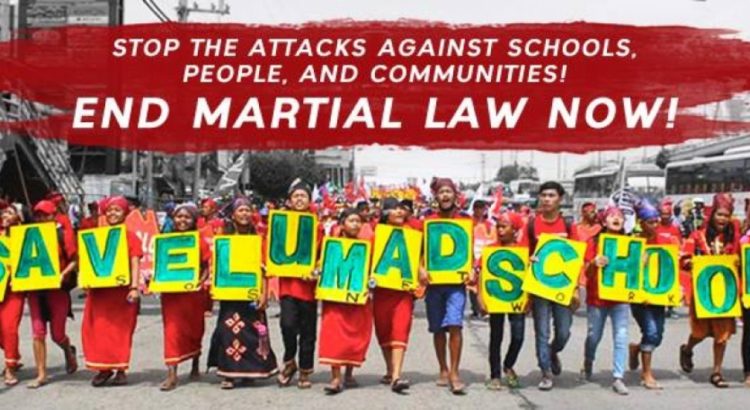
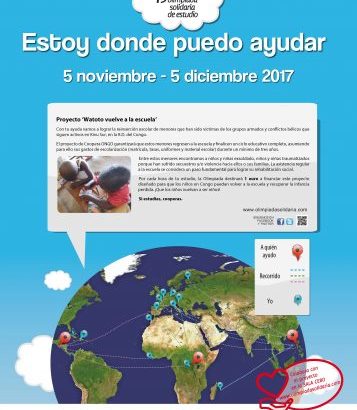
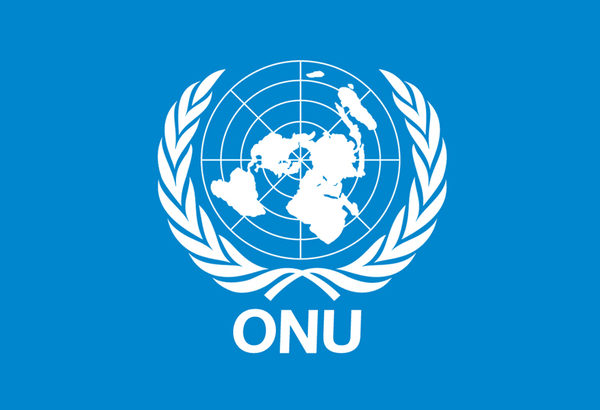
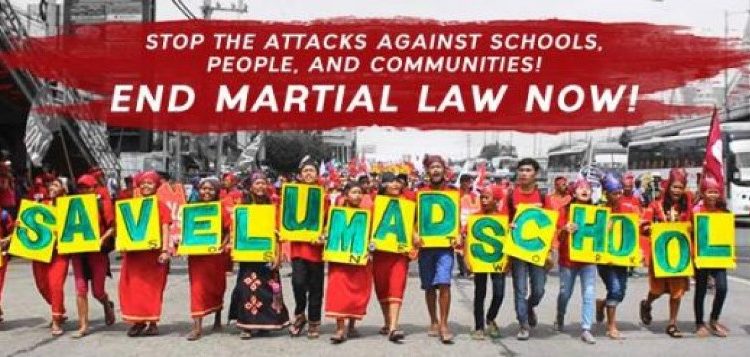

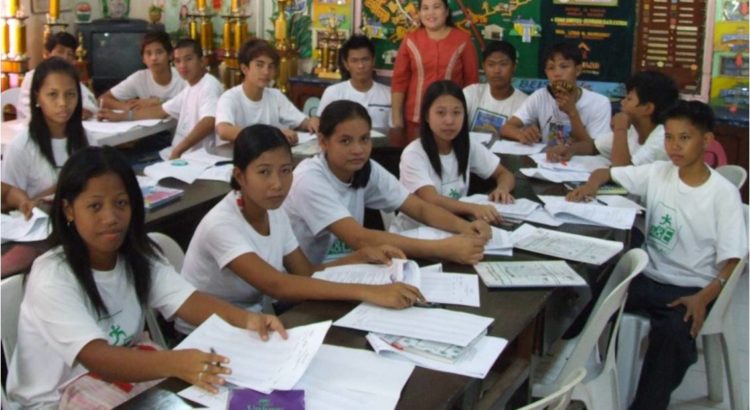







 Users Today : 17
Users Today : 17 Total Users : 35460370
Total Users : 35460370 Views Today : 24
Views Today : 24 Total views : 3419124
Total views : 3419124